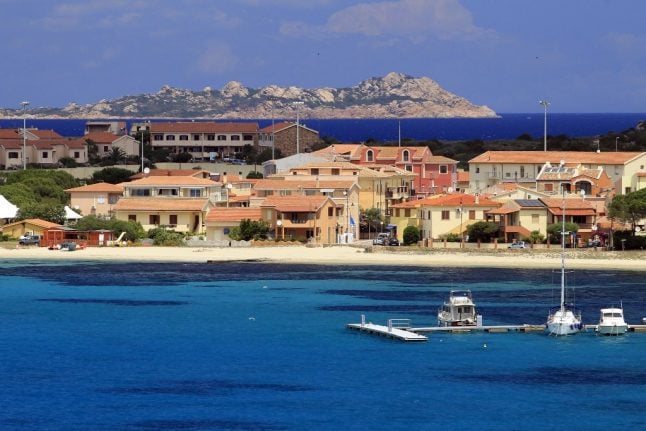The group of around ten adults and children, which also included one Italian national, two Brits, two Germans and a New Zealander, were stopped upon landing at Elmas airport in Cagliari on Wednesday morning.
They had flown by private plane from Colorado, despite Italy's ongoing ban on most non-essential travel from outside the EU, Schengen Zone and UK.
READ ALSO: Here are the current rules on travelling to Italy
“We were treated as if we were criminals, it's not fair,” Federica Fanari, a passenger who hails from Sardinia but lives in Germany, told local news site Casteddu Online.
After several hours in the airport, she and her friends eventually got back on the plane at about 11:30pm and flew to the UK. Some reports said Italian authorities had offered to allow the non-Americans to enter Sardinia on the condition they quarantined for 14 days, but the group apparently opted to stay together.
It's unclear why the group thought they would be allowed to enter Italy. While the EU has recommended reopening its external borders to a limited number of countries, the US has never been on the 'safe list' due to its high number of coronavirus infections.
EU citizens and residents, as well as their immediate family members, are allowed to return from the US, but they must quarantine for 14 days upon arrival.
Meanwhile the US government continues to advise against all non-essential international travel, including to Italy.
READ ALSO:
- Flights from the US to Italy are back on – but will you be allowed to board?
- 'How I managed to travel from the US to Italy during lockdown'
Fanari told local newspaper L'Unione Sarda that her group had “authorisation” from the Sardinian authorities before travelling, and that on arrival they had offered to get tested and quarantine themselves at a rented holiday house.
The island's government had “no responsibility for what happened,” said regional president Christian Solinas, who told the press that local authorities had attempted to find a solution that would have allowed the entire group to stay on Sardinia.
The national government's “restrictive interpretation” of the rules had “inflicted grave damage to the international touristic credibility of our island and our sense of hospitality”, Solinas said.
READ ALSO: The parts of Italy that are offering incentives to tempt tourists back

Photo: Iudovic Marin/AFP
Like other parts of southern Italy, Sardinia depends heavily on summer tourism and is seeking to draw visitors back while maintaining its low infection rate. The region is one of four in Italy that requires travellers to register before they arrive, including Italian nationals and residents.
Fanari's friends had been interested in looking at second homes on the island but after their experience “they told me they would never return to Sardinia”, she told Casteddu Online. Meanwhile she plans to consult a lawyer about seeking compensation for lost expenses, she said.
What are Italy's latest travel rules?
As of July 1st, people departing from 14 countries outside Europe – Algeria, Australia, Canada, Georgia, Japan, Montenegro, Morocco, New Zealand, Rwanda, Serbia, Republic of Korea, Thailand, Tunisia, Uruguay – can enter Italy as tourists, but they must continue to quarantine for two weeks on arrival.
People in any other non-European countries can only travel to Italy for reasons of work, health or absolute necessity, or to return home, or to study. They too must quarantine.
Citizens and residents from countries in the EU, Schengen Zone or UK may travel freely to Italy for any reason and without a quarantine requirement – provided they haven't been outside Europe in the previous 14 days.



 Please whitelist us to continue reading.
Please whitelist us to continue reading.
Wonder when filling out the form for Sardinia, Fanari ‘forgot’, to mention there were 5 US citizens who are not allowed into Europe, plus the New Zealander who is allowed in Europe but not in Italy.
Zero sympathy, should have checked their facts before attempting to travel.
I agree with you Kris, smacks of entitlement and arrogance.
Just another group of wealthy ‘ELITES’ who think rules do not apply to them! So happy you have now decided not to return to Sardinia; a few less arrogant and demanding tourists will be welcome.
Furbo 101. Failed.